Building muscle and strength is a serious undertaking, one that requires consistency, effort, dedication, and above all patience. So many lifters hit the gym with aspirations of becoming the next Arnold Schwarzenegger or Regan Grimes, only to abandon their goals after a few short months.
In large part, this is due to having unrealistic expectations about how much muscle and strength you can build in a certain amount of time.
Truth be told, it takes years and years and years to build the body of an Olympian, putting in the work in the gym, in the kitchen, and in the bedroom (we’re talking about sleep here...get your mind out of the gutter.)
Today, we’re going to zero in on nutrition, more specifically, how to set up a proper bodybuilding diet to help build size and strength as efficiently as possible.
ISOLIT
Great-tasting 100 pure whey protein isolate that supplies 25 grams of protein per serving.

So, let’s get started!
Constructing a Mass Gaining Diet
Should You Build Muscle or Lose Fat?
First things first, you need to decide if you should start by building muscle first or focus on losing. This really hinges on your current body fat percentage.
If you have a considerable amount of body fat (>20% for men and >30% for women), you should focus first on cutting. Doing so will put your body in a more conducive environment for building muscle as the less body fat you have the greater your insulin sensitivity and nutrient partitioning abilities will be.
If you are a rank beginner with a moderate amount of body fat, you can eat at maintenance and train hard. Since you are new to training you will be able to recomp (burn fat and build muscle at the same time).
If you have some training experience and low to modest levels of body fat (12-15% for men), you can focus on building muscle.
Calculate Your Calorie Needs
In order to build muscle and gain size, you will need to be in a calorie surplus. The only way to know with relative certainty that you are consuming a surplus of calories is by tracking your daily calorie intake and calculating how many calories you need to eat.
Now, there are a number of ways you can estimate your daily calorie needs. For example, you can calculate your TDEE, using our step-by-step guide, we’ve created. Or, if you want something a bit quicker (and slightly rougher), you can take your current body weight and multiply it by 13-15.
If you are more active during the day, multiply your bodyweight by 15, and if you have a more sedentary lifestyle, multiply it by 13.
This number will be your maintenance calories (i.e. the number of calories you need to eat to maintain your weight).
Since we’re trying to build muscle, we will need to be in an energy surplus.
Now, there are two ways we can go about gaining size:
- The classic “dirty” bulk, or
- The “lean” bulk.
The difference between the two really boils down to how big of an energy surplus you decide to incorporate.
We’d caution against the classic dirty bulk as it generally results in a lot of unnecessary fat gain, which means you’ll have to spend that much longer dieting to try to eliminate the body fat you’ve gained (and risk losing some of the muscle you just built as well).
Furthermore, the body can only synthesize so much muscle tissue at any given time, consuming far more calories than are needed to support this process doesn’t mean you will build muscle any faster.
For these reasons, we suggest going with a “lean” bulk whereby you use a smaller calorie surplus (~10-15% above maintenance).
So, for example, if your maintenance calories are 2500, you would add an additional 250 calories to your daily calorie intake and track your weight changes.
If you notice that you are slowly gaining weight (~0.5 lbs per week), then you know that you’ve created a sizeable enough calorie surplus to support muscle growth.
However, if you notice that the scale isn’t moving after a couple of weeks, you will need to increase your calorie intake further. We’d suggest adding another 100 calories to your daily intake and monitoring your progress.
Set Protein Intake
Now that you’ve got a general idea of how many calories you need to eat each day to support muscle growth, it’s time to start setting targets for your macronutrient needs.
Protein takes precedence as it is the most important macronutrient when we’re focused on improving body composition.
Based on the latest scientific research, protein intake should be set somewhere in the range of 0.8-1 gram per pound of bodyweight.[1]
For example, if you weigh 175 pounds, you will want to consume 175 grams of protein per day.
Set Fat Intake
The next macronutrient we need to set is fat. While dietary fat has been pretty heavily beaten up in the past, the simple truth of the matter is that the body does need a certain amount of fat to produce hormones (like testosterone) as well as support other biological processes.
However, you don’t need a ton of it (generally speaking 20-30% of daily calories from fat is plenty).
Therefore, we usually like to set fat at around 0.5 grams per pound of bodyweight.
Using our example weight above 175 pounds, this means you would consume ~88 grams of fat per day.
Now, if you are someone who prefers more carbohydrates in their diet and less fat, you can go as low as 0.3 grams per pound of bodyweight, but no less.
Set Carb Intake
Once you have your protein and fat needs satisfied, all you need to do is back out how many grams of carbohydrates you need to eat.
The way you do this is by subtracting out the calories from protein and fat, then dividing the result by four (since there are 4 calories per gram of carbohydrate).
To help illustrate, let’s keep using our example bodybuilder who weighs 175 lbs.
Daily calorie intake = 2750 calories (2500 calories + 250 calorie surplus to support mass gains)
Calories from protein = 175 * 4 = 700
Calories from fat = 88 * 9 = 792
Available calories for carbohydrates = 2750 - 700 - 792 = 1258
Daily carb intake = 1258 / 4 = 314.5
Based on our example bodybuilder, he would consume approximately 315 grams of carbohydrates each day.
Meal Planning
Once you’ve got your calorie needs and macronutrients set, it’s time to start figuring out how you’re going to get in all of those calories each day, which means we need to talk about meal planning.
Now, the importance of nutrient timing has been heavily downplayed in recent years, particularly in regards to the anabolic window (or lack thereof), but this simple truth of the matter is that if you’re going to optimize your muscle gaining phase, you will want to evenly space your meals throughout the day to promote an ideal environment for muscle building (anabolism).
Therefore, we suggest consuming somewhere between three to six meals per day. Break your meals into however many you would like to eat, based on your schedule and what works best.
Contrary to popular belief, there is no magical set number of meals you need to eat every day. At the end of the day, ensuring that you get in enough total calories and dietary protein is far more important than how many meals you eat.
That being said, if you’re looking to optimize things a bit, you might want to consider what some research from Alan Aragon and Brad Schoenfeld (The Hypertrophy Doc) have to say...
To help maximize the anabolic response, studies indicate that an individual should consume a minimum of four meals spread evenly throughout day, with each one containing a minimum 0.4 g/kg of protein per meal up to a maximum of 0.55g of protein per kilogram of bodyweight per meal.[2]
So, if your daily protein intake needs is 175 grams, and you’re eating four meals per day, you would want to have roughly 43-44 grams of protein per meal.
Again though, if your lifestyle doesn’t permit you time to eat this frequently during the day, that’s OK. Focus first on getting in enough total calories and protein, then you can worry about “optimizing” things to enhance your progress.
What Foods Should I Eat?
The beauty of building your own bodybuilding diet is that you get to decide what foods you want to eat (so long as they fit into your calorie and macronutrient limits). The days of eating six meals per day of boiled chicken, brown rice, and broccoli are long gone.
So long as you are focusing on micronutrient-dense, whole food sources, you can pretty much use whatever foods you prefer to create your diet.
If you don’t like chicken, then there’s no need to eat it. Opt for lean beef, turkey, pork, or any number of fish and seafood options.
Same goes for vegetables. If you don’t like broccoli, try snow peas, asparagus, spinach, kale, or brussels sprouts.
When you know how many calories to eat and how much of each macronutrient that you need to consume each day, you have the power to decide what foods to eat that allow you to hit those set targets!
Here's Primeval Labs athlete and IFBB pro Romane Lanceford with some additional tips on setting up your very own bodybuilding diet:
Pre-Workout Meal
Concerning pre workout nutrition, you’ll hear arguments from both sides of the fence. Some will state that a pre workout meal is unnecessary, while others say it’s absolutely crucial to optimizing performance and lessening the likelihood of muscle breakdown.
Truth be told, there is research to support both stances, but a large part of the necessity for pre and post workout nutrition depends on when you last ate as well as the composition of the meal.
You see, depending on the size and makeup of your last meal, your body will spend between 2-6 hours digesting it. The larger the meal is as well as the more protein, fat, and fiber it contains, the longer it will take to digest.
Conversely, if your meal consists of some fast digesting carbohydrates and protein, it will digest rather quickly.
This means that if you’ve had a decently sized meal an hour or two before your workout, you don’t really need to worry about a pre workout meal as your body has ample nutrients available to sustain performance and combat muscle breakdown.
If, however, it’s been several hours since your last meal, or your training first thing in the morning upon waking, then having a small, fast-digesting meal can definitely help.
But, what if you’re someone who doesn’t like to train with a lot of food in their system?
Well, then at the bare minimum, you’ll want to do a scoop of protein powder, preferably whey protein (such as Primeval Labs ISOLIT) as it is rapidly digested and provides a quick and rather pronounced elevation in amino acids, particularly leucine (the “anabolic trigger” of muscle growth).[3]
This makes whey an ideal option for pre-workout protein.[4] Studies also show whey protein makes a great post workout meal option as well.[5]
Now, concerning carbohydrates, that really depends on both the intensity and duration of your training session. But, if you’re going to be engaging in high-intensity resistance-training, having some fast-digesting carbohydrates ~30 minutes before exercise provides your muscles with additional fuel for training (which allows you to train harder, longer and with greater intensity, thereby eeking out more gains).[6]
Post Workout Meal
As we stated when discussing the need for pre workout nutrition, the necessity for you slamming down a protein shake immediately after your last training set really hinges upon how long ago you had a solid meal.
If you consumed a decent-sized meal an hour or two before your workout, there’s no immediate rush to pound back a protein shake. You can take your time changing, showering, and getting to where ever you need to get to as your body is likely still digesting and absorbing the nutrients from your pre workout meal.
However, if it’s been several hours since you’ve eaten anything substantial, and you didn’t use any form of intra workout supplementation (like Intracell 7 Black or EAA Max), then you will likely want to get some protein in you as quickly as possible to limit the amount of tissue breakdown and promote the recovery and growth process.
Are Pre Workout Supplements Helpful?
Pre-workouts receive a lot of hype, but are they really worth it?
Well, that depends.
More specifically, it depends on the ingredients used and the doses included in the pre workout.
If your pre-workout contains research-backed doses of scientifically vetted ingredients (such as those included in Primeval Labs Mega Pre), then yes, a pre workout supplement can be helpful.
Primeval Labs includes well-studied ergogenics such as betaine, glycerol, VasoDrive-AP, and citrulline to support performance, hydration, and blood flow. Best of all, we’ve made Mega Pre stimulant-free, meaning that you can take it whether you train first thing in the morning and late in the evening.
The other added bonus of having a stimulant-free pre workout is that you get to decide if you want to add any caffeine to it as well as how much to include. So often other pre workouts include truckloads of caffeine, yet very little actual performance boosters.
Mega Pre flips the script on the common pre workout narrative by removing the stimulants and focusing solely on providing the body with nutrients that improve performance, focus, and stamina.
References
- Morton RW, Murphy KT, McKellar SR, et al. A systematic review, meta-analysis and meta-regression of the effect of protein supplementation on resistance training-induced gains in muscle mass and strength in healthy adults. British Journal of Sports Medicine 2018;52:376-384.
- Schoenfeld, B. J., & Aragon, A. A. (2018). How much protein can the body use in a single meal for muscle-building? Implications for daily protein distribution. Journal of the International Society of Sports Nutrition, 15(1), 10. https://doi.org/10.1186/s12970-018-0215-1
- Boirie Y, Dangin M, Gachon P, Vasson MP, Maubois JL, Beaufrère B. Slow and fast dietary proteins differently modulate postprandial protein accretion. Proc Natl Acad Sci U S A. 1997;94(26):14930–14935. doi:10.1073/pnas.94.26.14930
- Phillips, S. M. (2011). The science of muscle hypertrophy: making dietary protein count. The Proceedings of the Nutrition Society, 70(1), 100–103. https://doi.org/10.1017/S002966511000399X
- Hulmi JJ, Lockwood CM, Stout JR. Effect of protein/essential amino acids and resistance training on skeletal muscle hypertrophy: A case for whey protein. Nutr Metab (Lond). 2010;7:51. Published 2010 Jun 17. doi:10.1186/1743-7075-7-51
- Tsintzas, K., Williams, C., Constantin-Teodosiu, D., Hultman, E., Boobis, L., & Greenhaff, P. (2000). Carbohydrate ingestion prior to exercise augments the exercise-induced activation of the pyruvate dehydrogenase complex in human skeletal muscle. Experimental Physiology, 85(5), 581–586.







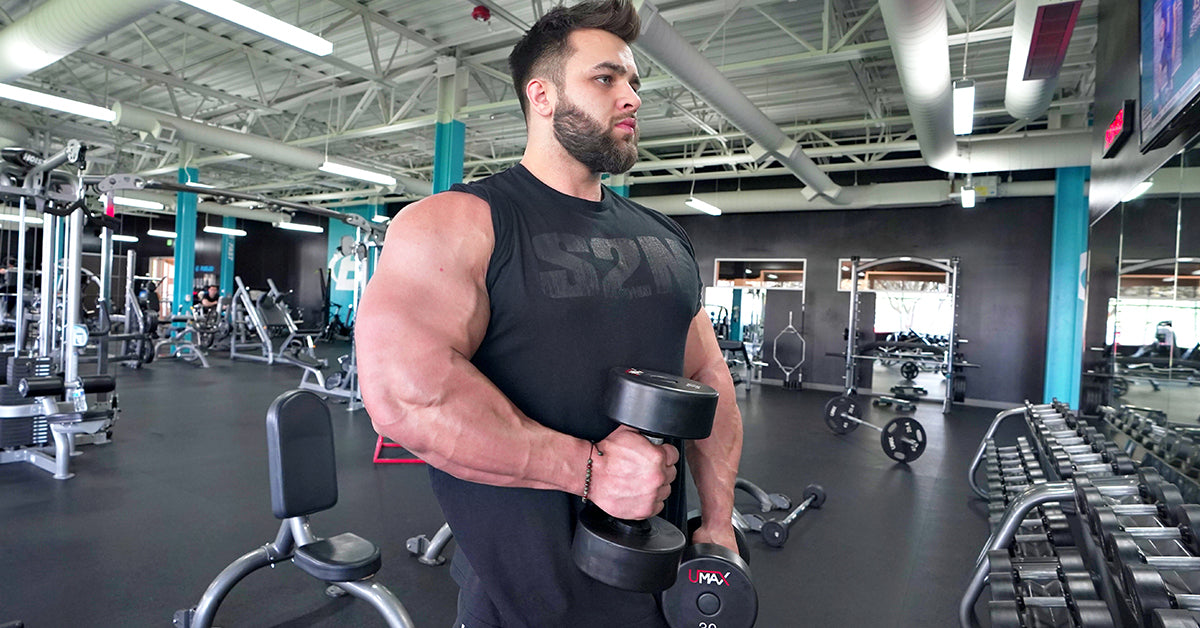
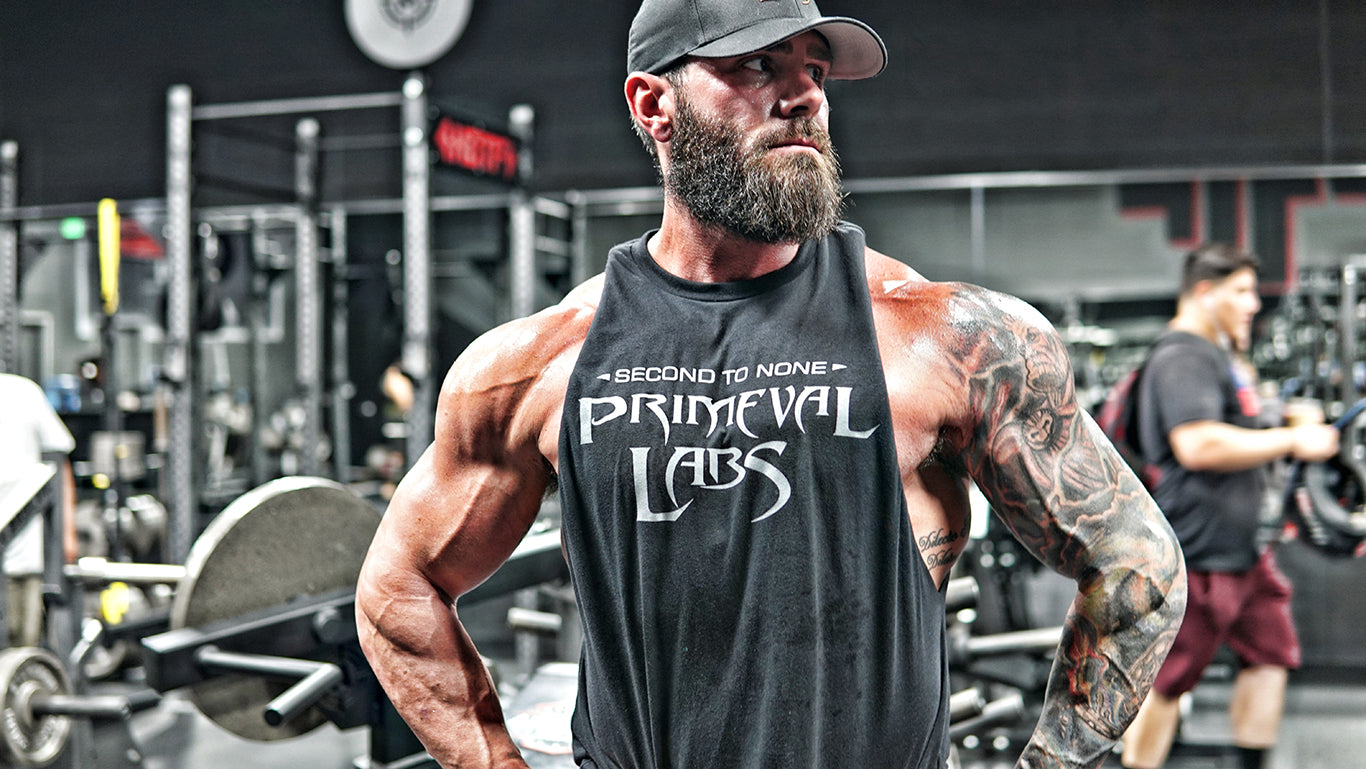
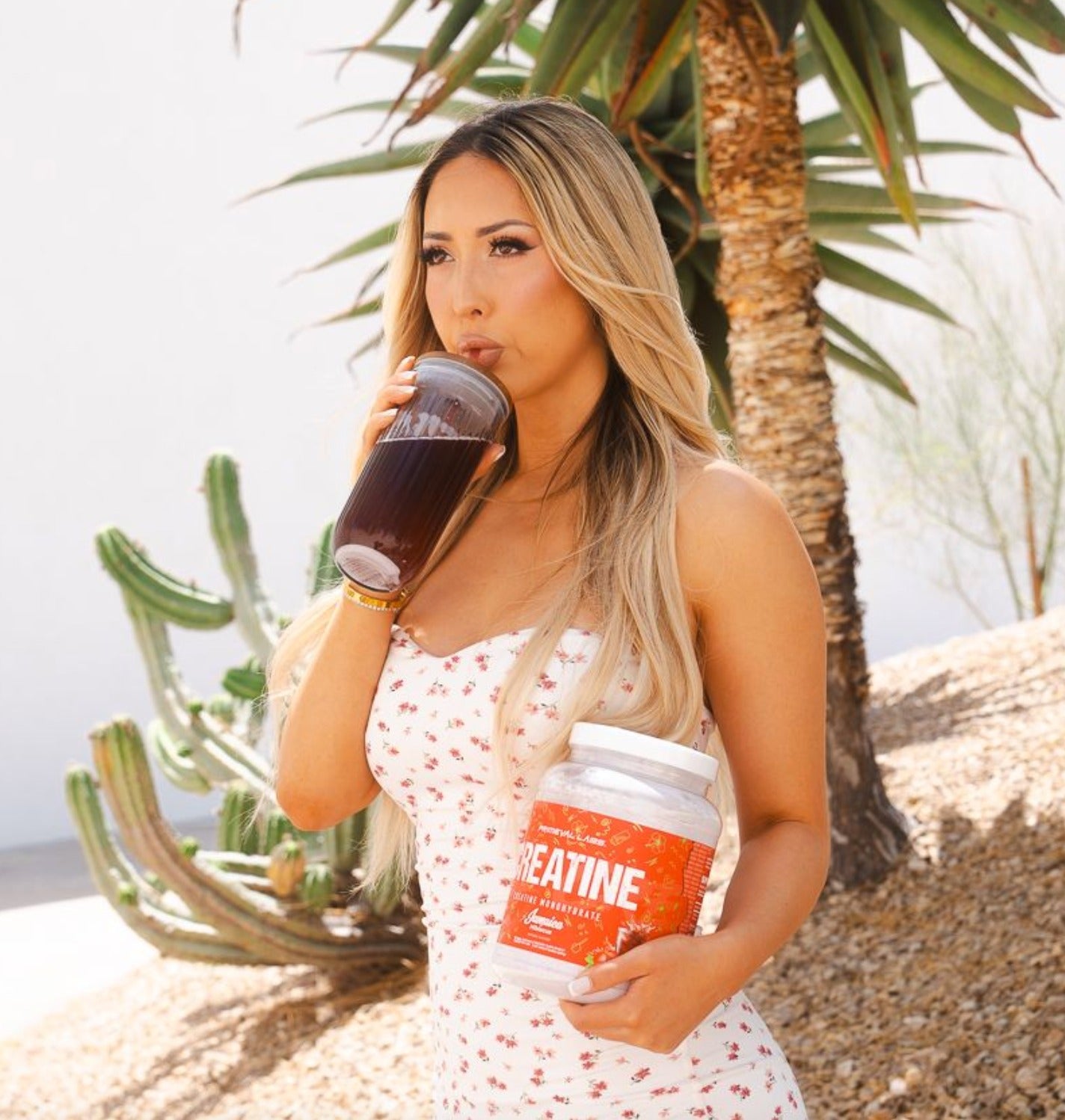
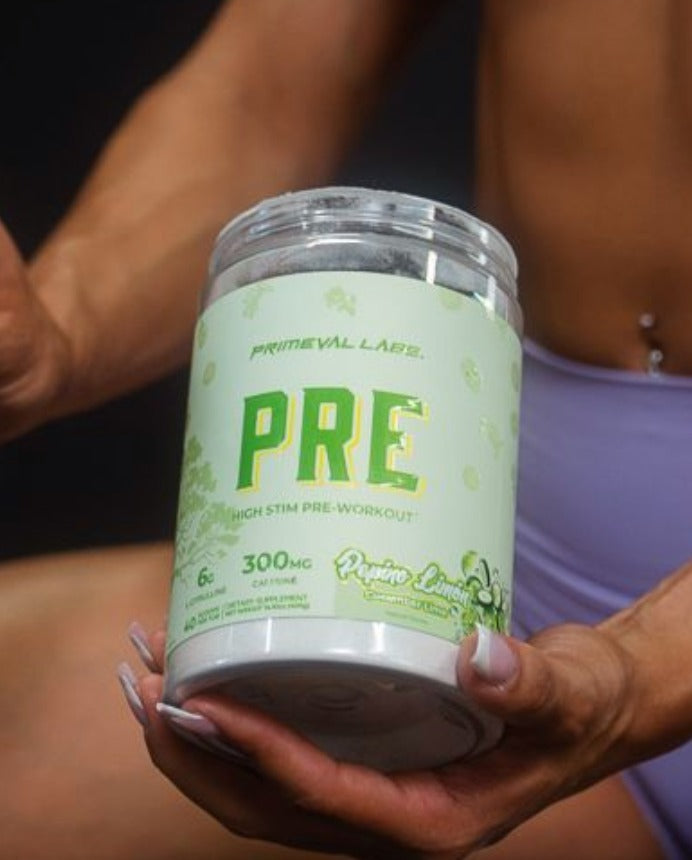
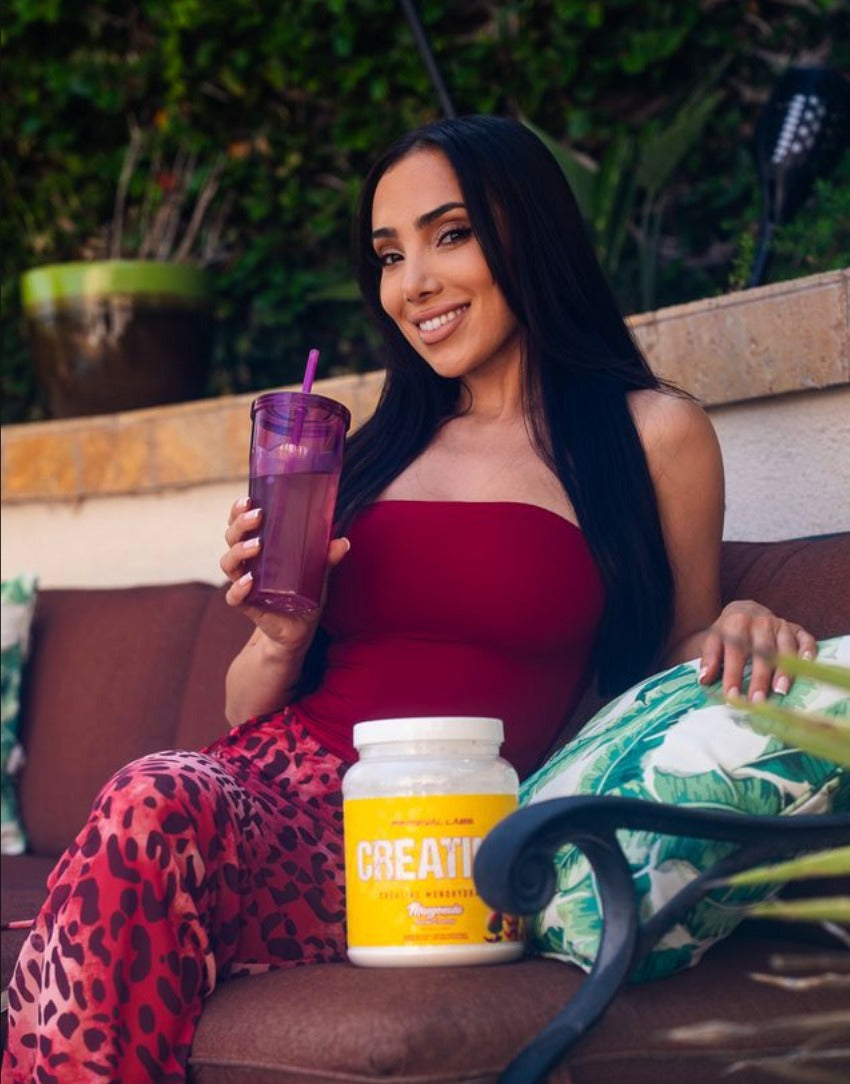

Leave a comment
This site is protected by hCaptcha and the hCaptcha Privacy Policy and Terms of Service apply.